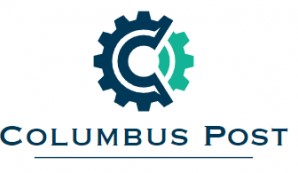
As organizations face the demands of the digital age, they are under increasing pressure to continually refine their workforce skills. AI-driven solutions are reshaping how companies match employees to projects and bridge skills gaps. Leading platforms now promote internal mobility and improve talent management. But how can AI remodel the future of talent growth?
AI’s Impact on Skill Mastery
Artificial intelligence offers a precise method for quantifying workforce skills, making it an invaluable component of modern talent management software. Through skills inference, AI analyzes employee data to assess proficiency levels and direct personal career paths and broader organizational strategies. This approach moves beyond basic estimates, providing businesses with actionable insights to stay competitive.
Accurate assessment of employee competencies relies on a well-defined skills taxonomy—a framework identifying core competencies across the organization. By aligning these competencies with strategic objectives, businesses can efficiently match employees to the right projects. AI-driven platforms enhance this process, enabling organizations to quickly identify experts and close skills gaps through tailored development plans, ultimately supporting significant development.
Data-Driven Talent Management
A reliable skills inference process hinges on the quality of data collected from workers. For instance, Johnson & Johnson exemplifies the potential of AI in workforce transformation. Initially focusing on its Technology group, J&J implemented a skills inference program aimed at fostering digital fluency among its 4,000 technologists. This initiative began with a structured approach: creating a skills taxonomy, gathering robust data, and conducting assessments. The success of this program not only bridged ability gaps but also promoted continuous growth across the organization.
Implementing AI initiatives requires building trust among the staff. Ensuring transparency about how AI models will use their data is a must. When people are confident that their data will be used solely to support their professional growth—not to invade privacy or influence performance reviews unfairly—they are more likely to engage with the initiative.
One of the main challenges is ensuring the consistency and semantic richness of collected data. Collaborations between the Digital Talent team and HR data experts help identify useful data sources while addressing data quality issues. By selecting the right data, organizations can achieve a comprehensive view of employee capabilities and effectively match people to projects. This approach not only facilitates internal mobility but also demonstrates the organization’s commitment to meaningful growth.
Closing Skills Gaps with AI Insights
The insights gained from the AI-powered skills inference process offer significant benefits to organizations. They equip workers with valuable information for personal development, while providing leaders with strategic tools for workforce improvements. As demonstrated by J&J, structured implementation of these insights reduces skills gaps. This fosters digital acumen across the organization.
By aligning personal development plans with organizational requirements, employees can enhance their capabilities systematically. Understanding proficiency in various areas allows for targeted training and upskilling efforts, ultimately supporting personal career aspirations alongside the company’s goals.
A clear depiction of existing skills and gaps enables leaders to make informed decisions regarding talent management and strategic planning. This proactive approach ensures the organization stays ahead in the ever-evolving digital landscape, illustrating how AI can create connections for ongoing development.

“Amateur introvert. Reader. Coffee aficionado. Professional music maven. Bacon practitioner. Freelance travel nerd. Proud internet scholar.”




More Stories
Sustainable Acrylic Nail Options: Beauty with a Conscience
The Taliban want to silence women – now they’re singing in protest
Fraud: false letters from Raiffeisenbank